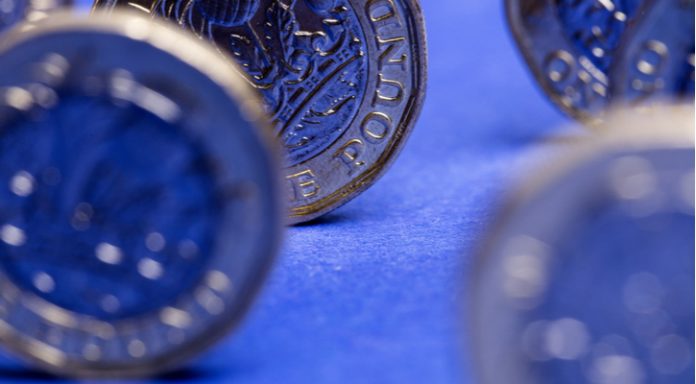The pound came under heavy selling in early trade on Tuesday despite no obvious headlines or data UK data releases. The pound dropped versus the euro to a day’s low of €1.1368, before paring some on those losses later in the day and pushing back above €1.1400.
| What do these figures mean? |
|---|
|
When measuring the value of a pair of currencies, one set equals 1 unit and the other shows the current equivalent. As the market moves, the amount will vary from minute to minute. For example, it could be written: 1 GBP = 1.13990 EUR Here, £1 is equivalent to approximately €1.14. This specifically measures the pound’s worth against the euro. If the euro amount increases in this pairing, it’s positive for the pound. Or, if you were looking at it the other way around: 1 EUR = 0.87271 GBP In this example, €1 is equivalent to approximately £0.87. This measures the euro’s worth versus the British pound. If the sterling number gets larger, it’s good news for the euro. |
Whilst sterling traders were left with a lot to digest last week, this week so far couldn’t be more different. Last week the UK agreed a post Brexit transition deal, paving the way for a smoother, more pound friendly Brexit. Additionally, the Bank of England also increased investor optimism for a rate hike, possibly as early as May, after a 7 -2 vote split, whereby 2 member voted for a rate hike immediately.
The start of this week has been exceptionally quiet for the pound, with very little in the way of high impacting data. Furthermore, following the transition deal agreement, Brexit headlines remain scarce.
Today, economic releases start to increase again. Analysts are expecting UK Consumer confidence in March to remain constant at -10. Confidence dipped in February as rising prices and falling wages in real terms continued to squeeze investors. Now, even though inflation is easing and wages growing, Brexit uncertainty is likely to remain a drag on confidence. Should the reading kift slightly thanks to the slightly improved economic conditions, the pound could move higher.
| Why does strong economic data boost a country’s currency? |
|---|
| Solid economic indicators point to a strong economy. Strong economies have strong currencies because institutions look to invest in countries where growth prospects are high. These institutions require local currency to invest in the country, thus increasing demand and pushing up the money’s worth. So, when a country or region has good economic news, the value of the currency tends to rise. |
Eurozone Consumer Confidence Continues To Fall
The euro was broadly weaker on Tuesday, albeit stronger than the pound, as confidence in the eurozone tanked. Confidence in the eurozone has been falling in recent months as concerns are growing over the slowing of momentum in the bloc’s economy, in addition to political issues arising. Brexit is nearing and although analysts are forecasting a heavier impact on the UK, the EU is unlikely to escape unscathed. Furthermore, concerns over the political climate in Spain, Germany and Italy were also highlighted as concerns.
Today’s focus sticks with consumer confidence, but this time in Germany, the powerhouse of Europe. Analysts are predicting a slight decline, anything larger than the 0.1 pencilled in, could end the euro lower.
|
This article was initially published on TransferWise.com from the same author. The content at Currency Live is the sole opinion of the authors and in no way reflects the views of TransferWise Inc. |





